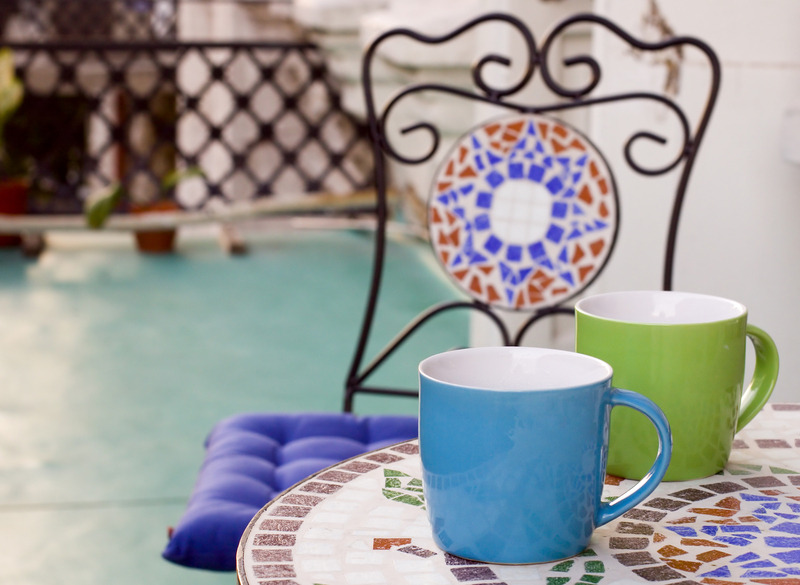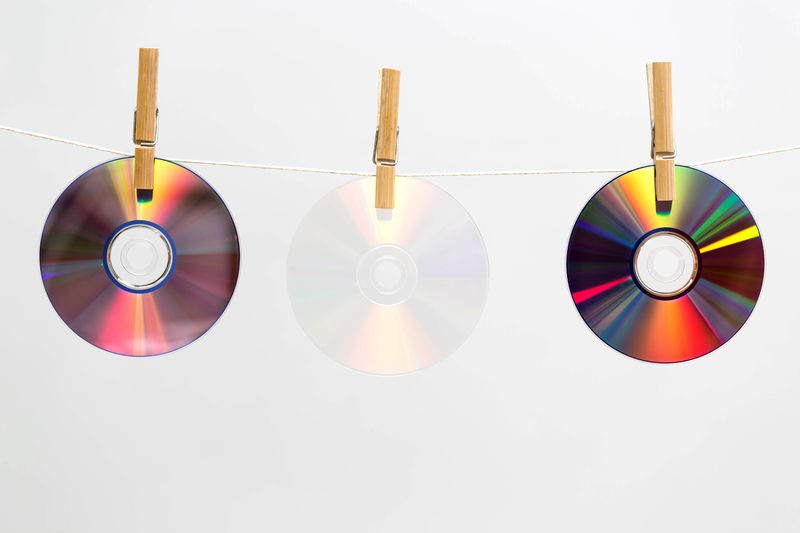Don't Toss Pots and Pans: Recycle or Reuse Them Instead
When your favorite saucepan or skillet reaches the end of its culinary life, it doesn't have to end up in the trash. With growing global awareness about sustainability, there are numerous alternatives to discarding old cookware. Don't toss pots and pans--instead, explore creative ways to reuse, repurpose, or recycle them effectively. In this article, we'll dive deep into eco-friendly solutions that will not only help our planet but also spark your creativity.
Why You Shouldn't Throw Away Old Pots and Pans
The average kitchen sees hundreds of tons of metal waste annually. Throwing out old cookware contributes to landfill overflow and misses the opportunity to conserve resources through recycling or creative reusing. Here's why it matters:
- Environmental Impact: Metals used in pots and pans, such as aluminum, stainless steel, and copper, take decades or even centuries to break down.
- Resource Conservation: Recycling metals reduces the need for mining raw materials and helps conserve energy.
- Creative Potential: Repurposing cookware adds character, charm, and functionality to your home and garden.
- Cost Savings: By reusing and recycling, you may save money on new household items or reduce disposal costs.

Can You Recycle Old Pots and Pans?
Recycling pots and pans isn't always as simple as tossing them into your curbside bin. Cookware is usually composed of complex materials, sometimes a mix of metals and coatings, so you need to know the right way to recycle them. Read on for a guide on how to dispose of old pots and pans responsibly, ensuring they have a second life.
Which Materials Can Be Recycled?
- Aluminum: Most curbside recycling programs accept aluminum pans, especially if they are clean and free from non-metal components.
- Stainless Steel: A valuable recyclable material; scrap yards and recycling centers often pay for stainless cookware.
- Copper: Although rare, copper pans are especially desirable at metal recycling facilities due to copper's high value.
*Note: Nonstick coatings, plastic handles, or glass lids may need removal prior to recycling.*
How to Prepare Pots and Pans for Recycling
Follow these steps for recycling your old cookware:
- Remove Non-Metal Parts: Unscrew or break off plastic, rubber, wooden, or glass fittings.
- Clean Thoroughly: Wash away any food residue to avoid contamination in the recycling process.
- Check for Coatings: Some recycling centers won't accept Teflon-coated or nonstick pans due to chemical coatings. Contact your local facility for specific guidelines.
- Find Your Local Metal Recycler: Not all recycling centers handle cookware, but scrap yards and specialized metal recyclers almost always do.
Where Can You Recycle Cookware?
If you're wondering where you can recycle old pots and pans, here are some practical options:
- Municipal Recycling Centers: Call to confirm whether they accept cookware and what prep is necessary.
- Scrap Metal Yards: These facilities often pay by weight for scrap metal, including cookware.
- Retail Take-Back Programs: Some retailers offer trade-in or recycling programs for kitchen products.
- Charity Donation: If the cookware is still usable, consider donating to thrift stores or shelters.
Creative Ways to Reuse Old Pots and Pans
Before recycling, consider all the creative and practical uses your old cookware might have. Repurposing old pans and pots can breathe new life into your home, garden, and even your art projects:
Planters and Flowerpots
- Perfect for Urban Gardens: Punch drainage holes in the bottom, add soil, and watch herbs, succulents, or annuals bloom.
- Hanging baskets: Use saucepan handles to hang your new planter from fences or balconies.
Organize With Style
- Desk Organizer: Use a shallow pan to store stationery, electronics, or craft supplies on your desk.
- Utensil Holder: Tall pots make excellent holders for kitchen utensils, paintbrushes, or even garden tools.
Garden Accessories and Bird Baths
- Water Features: An old wok or baking pan can become a charming small bird bath or water dish for wildlife.
- Garden Decor: Spray paint old pans and arrange them as garden ornaments.
Cookware Wall Art
- Decorative Displays: Arrange pans in clusters on the kitchen wall for a quirky, rustic vibe.
- Chalkboard Pan: Paint the bottom with chalkboard paint and use for daily menus or messages.
Miscellaneous Creative Uses
- Pet Food Dish: Heavy-bottomed pans work well as un-tippable food or water bowls for pets.
- Craft Base: Fill with wax to make unique candles, or use as a mold for cement garden stones.
- Gift Baskets: Fill an old pot with gourmet foods or gardening supplies for a thoughtful, functional gift basket.
Donation: A Sustainable Option
If your cookware is still in fair condition, consider donating rather than recycling it. Many organizations would appreciate gently used pots and pans:
- Local Shelters
- Community Centers
- Charity Thrift Stores
- Students or young adults setting up their first home
Pro Tip: Clean and inspect your items before donating. Charities generally accept only items in good, usable shape.
When Should You Replace Your Pots and Pans?
Not all worn cookware should be kept in use or donated:
- Nonstick pans with peeling coatings can release harmful chemicals and should be recycled, not reused for food.
- Warped bases can result in uneven heating and may be unsafe.
- Cracked or broken handles present a risk in the kitchen, and those pans should be recycled or repurposed instead of reused for cooking.
Tips for Extending the Life of Your Pots and Pans
If you want to delay the day your cookware needs to be recycled or repurposed, consider these care tips:
- Use gentle cleaning tools, such as soft sponges, instead of metal scourers, especially on nonstick and enamel surfaces.
- Season cast-iron cookware regularly to maintain the nonstick surface and prevent rust.
- Do not overheat empty pans, which can damage both nonstick coatings and metals.
- Store cookware properly to avoid dents or scratches.
Common Questions About Pots and Pans Recycling
Can Nonstick Cookware Be Recycled?
Teflon and similar coatings often make nonstick cookware unwelcome in standard recycling bins. Specialized programs do exist, so always contact your local recycling site or look for mail-back recycling programs that handle these products.
What About Enamel or Glass-Lidded Pans?
Enamel coatings and glass lids usually need to be separated from the metal base. While scrap metal yards may accept the metal portions, lids often go with regular glass recycling if accepted. Check your local guidelines.
Is It Safe to Use Old Cookware for Gardening?
As long as you thoroughly clean the pot or pan and avoid growing edible plants in cookware with toxic coatings, it's generally safe. For growing herbs or veggies, use cookware made from safe materials like stainless steel, cast iron, or uncoated aluminum.

How Recycling Old Cookware Benefits the Environment
- Reduces Landfill Waste: Less metal waste equals less land needed for dumps.
- Conserves Resources: Recycling metal cookware means less need for mining and refining new ore.
- Saves Energy: Producing new metal goods from recycled material uses less energy than starting from raw resources.
- Decreases Pollution: Recycling plants produce fewer pollutants compared to primary metal production facilities.
Conclusion: Give Old Pots and Pans a New Lease on Life
Don't toss pots and pans--there's a world of possibility in every battered saucepan or rusty baking sheet. Whether you choose to recycle your pots and pans, repurpose them into creative home accessories, or donate them for further use, your actions have a measurable, positive impact on the environment.
So next time you upgrade your cookware, remember: think sustainability, not landfill! By choosing to recycle or reuse your old pots and pans, you play a part in reducing waste, conserving resources, and promoting a greener world for future generations.
- Explore your local recycling options.
- Get creative with crafty reuses.
- Donate whenever possible.
Every pot and pan deserves its chance at a second life.